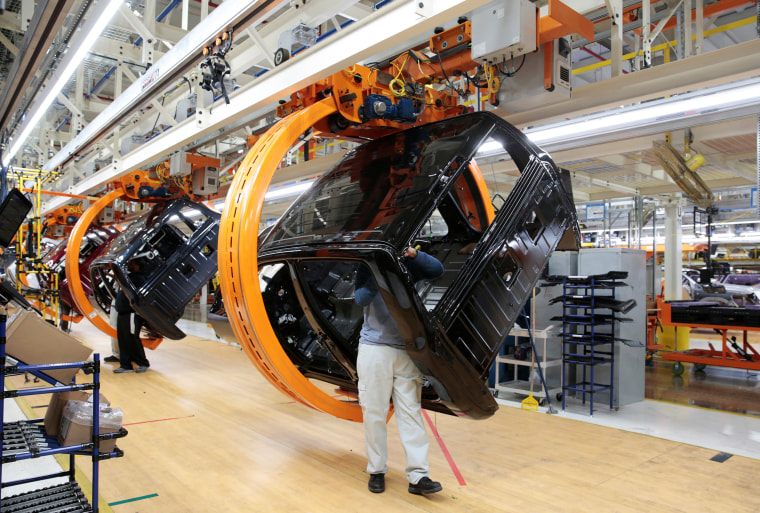Fiat Chrysler Automobiles has confirmed it is working on a possible merger with Paris-based PSA, the parent of the Peugeot and Citroën brands — an ironic twist, considering FCA failed to complete a deal earlier this year with PSA’s French arch-rival, Renault.
A deal between FCA and PSA would create a Honda-sized global manufacturer, valued at around $50 billion, and help the two companies address a variety of problems — filling in in markets where each currently is weak, while also addressing challenges posed by the auto industry’s costly push into autonomous and electrified vehicles.
For its part, the Italian-American automaker issued a statement early Wednesday saying it “confirms there are ongoing discussions aimed at creating one of the world's leading mobility groups.”
The PSA and Fiat Chrysler boards were both scheduled to hold extraordinary meetings on Wednesday to discuss the merger proposal, NBC News confirmed. While it remains unclear precisely how far along the talks have progressed, the process would likely stretch well into 2020.
Fiat and PSA have had ties for a number of years, among other things, working together on various vehicles and powertrains for the European market.
One of the challenges each now faces is what that source described as the “intense headwinds” facing the industry, especially when it comes to new technologies that could become dominant within a decade. FCA, in particular, has been slow to embrace electrification. It currently offers just one plug-in hybrid, a version of the Chrysler Pacifica. Its only all-electric model, the Fiat 500e, is being pulled from the U.S. market.
PSA has been more aggressive in adopting battery-based technology but, like FCA, it faces industry juggernauts such as the Volkswagen Group, which will invest over $12 billion in all-electric models alone, bringing as many as 50 models to market by 2025.
The two potential partners also see opportunities to fill in gaps in both their product and geographic portfolios. FCA has largely pulled out of the passenger car market, for example. PSA is struggling to make a comeback in the U.S. market after a quarter-century absence. And both need help in China, the world’s largest automotive market.
FCA, which was created after the Chrysler side of the company emerged from bankruptcy in 2010, has long been looking for an additional partner. It has been rebuffed by giants like GM and VW, and it saw the Renault deal collapse last June after the French government tried to delay the talks.
For its part, PSA has seen its fortunes reverse dramatically since it nearly went bankrupt in 2013. CEO Carlos Tavares, who had been the second-in-command at Renault, stepped in as CEO later that year and has led a major revival that saw PSA deliver record profit margins of 8.7 percent for the first half of 2019. Perhaps his single biggest accomplishment was negotiating the 2017 takeover and turnaround of long-struggling German manufacturer Opel, a former GM subsidiary. After two decades of losses, Opel was back in the black within 12 months — two years ahead of schedule.
Who would manage the new, joint company is uncertain, but several sources indicate the proposed management team would echo the structure discussed with the FCA-Renault proposal. FCA Chairman John Elkann — heir to Fiat’s founding Agnelli family — would retain his position, while PSA’s Tavares would remain CEO of the new company. Where current Fiat Chrysler CEO Michael Manley might fit in is unclear, though he is not expected to leave the new company.
